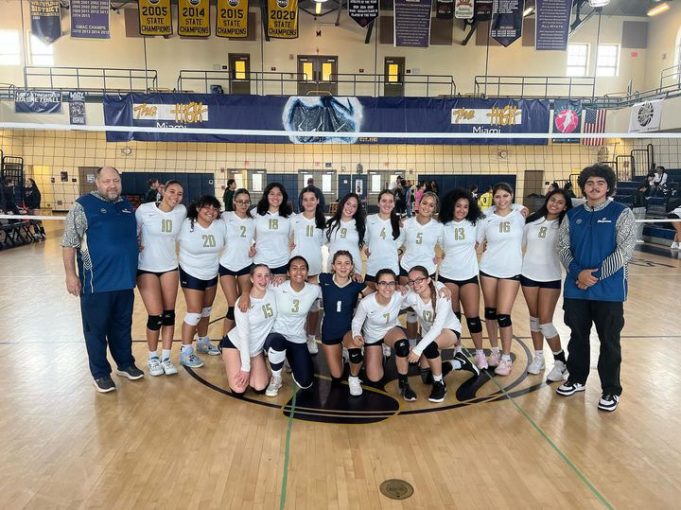One Step Closer to College
Source: https://www.washingtonpost.com/news/parenting/wp/2015/12/03/tips-to-help-their-kids-stay-engaged-in-learning-even-when-the-going-gets-rough/?utm_term=.849a7a0c38d0
March 9, 2018
You are sitting in that chair in a room full of strangers, you start to panic, and your palms get sweaty. Time is ticking, and it seems as if you’ve been testing forever. Your mind goes blank, and you don’t know what to answer.
Many seniors have been in this situation. When it comes to taking the SAT or ACT, things get serious, because those tests determine what path you will take in college and how much you stand out.
Many students at Miami High spend months studying for these challenging college exams. Senior Carla Garcia said, “I took the SAT once without studying to see what parts of the test I need to work on, but the second time taking the test, I studied with a group of my friends on Khan Academy, which was a big help for all of us.”
Junior Tamia Gonzalez said, “I prepared for the SAT with my teachers, especially my math and English honors teachers. We would always do high level thinking assignments. Thanks to them, I received a 1040 on the SAT.”
Teachers are a very big help with prepping us for the tests. They are the ones who pass on the knowledge to their students. Math teacher Ms. Munguia said, “I try to incorporate SAT style questions into the lectures that I give to my kids. Whenever we are dealing with a particular topic, I look through previous SAT’s, and I try to find questions that relate to what it is that I am teaching.”
English teacher Ms. Guerra said, “We go over basic test-taking strategies because a lot of students get psyched out even at the idea of taking a test and they forget to read instructions, they skip over questions, they stay too long on a question that they don’t know the answer to. We go over process of elimination, reviewing the questions before reading the text.”
The SAT has two sections: Math and Evidence-based Reading and Writing, which are both scored on a scale from 200-800 points. There is also an optional essay with a score ranging from a 2-8.
The ACT has four sections: English, Math, Reading, and Science which are each scored from a scale of a 1-36. Those scores are then averaged to give a composite score between 1 and 36.
Junior Bryan Delacruz, who received a 1200 on the SAT, said, “I would like to improve my score because I feel that I can do better.” Junior Tamia Gonzales said, “I don’t think I would take the SAT again because I got the scores I needed.”
Some students find these tests more challenging than others. Junior Yaimar Aguilar, who took the SAT, said, “Some parts were more challenging, yet I found the math portion quite challenging.” Senior Esteban Lage, who took both the SAT and ACT, said, “For me it was not that challenging whatsoever. The subjects it covered were already introduced in my classes, and I am very knowledgeable in those subjects.”
Students can retake the SAT or ACT multiple times. Maybe the first time you took the test you were a bit antsy, or maybe you were having a difficult day. Senior Carla Garcia said, “I recommend you retake the test because I was more familiar with the topics and level of complexity that the questions had.”





